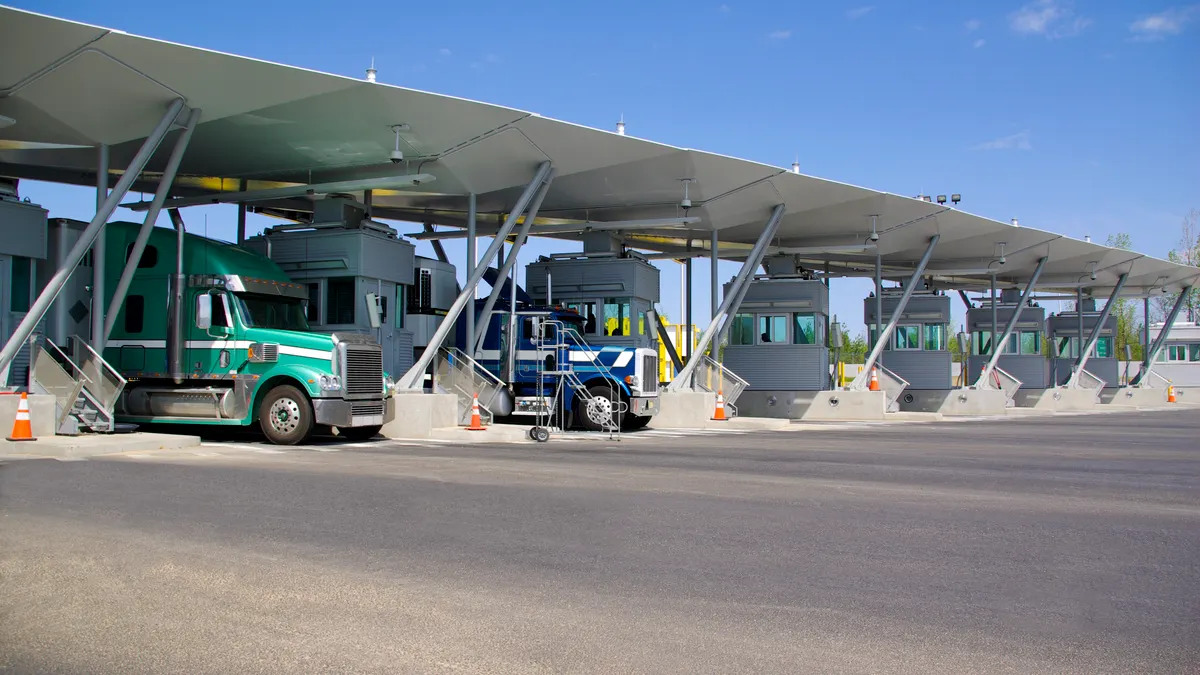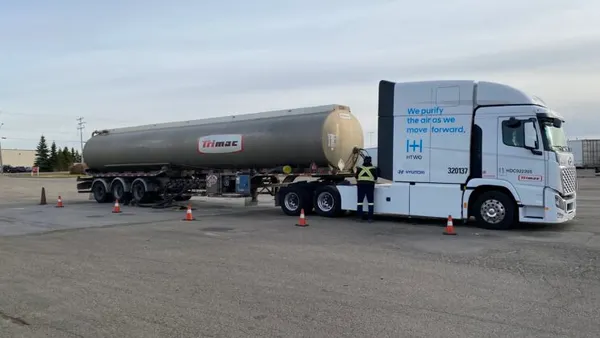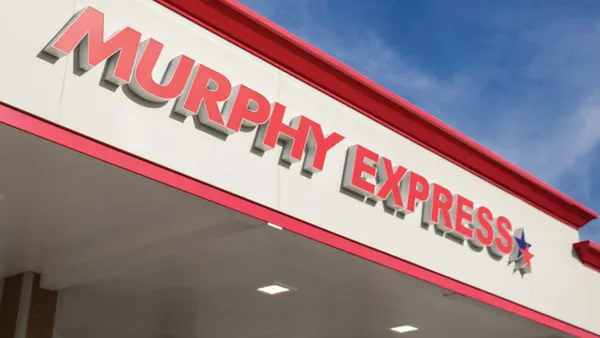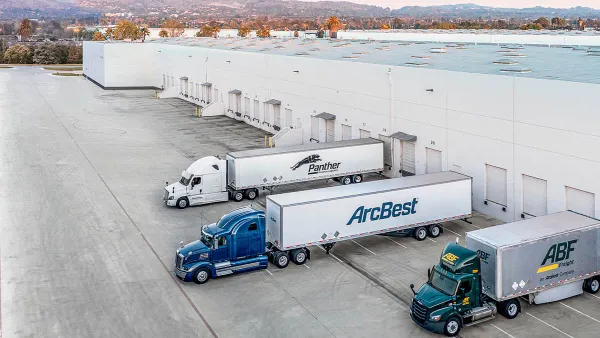Editor’s note: This is the second story in a series about trucking companies’ clashes with investors over environmental reporting and goal-setting proposals.
Electric trucks’ costs and inadequate rebates mean transitioning an entire fleet like Knight-Swift Transportation Holdings’ 27,000-plus tractors would make those operations unprofitable.
The trucking giant said in a notice that the current cost differential between a traditional tractor and an EV is approximately $200,000-$300,000.
To help bridge that gap, an Inflation Reduction Act rebate only covers $40,000 per commercially clean vehicle, the company said.
That’s the message the company is sending shareholders ahead of an annual meeting on Tuesday where investors will vote on a measure that seeks to enhance Knight-Swift’s environmental reporting and policies.
The proposal comes from corporate activist John Chevedden, who wants the company to align with the Paris Agreement’s goal to limit global temperature increases by 1.5 degrees Celsius above pre-industrial levels, according to the submitted proposal. A resolution calls for the trucking business to issue near- and long-term targets.
Board defends Knight-Swift’s environmental efforts
But the company’s board recommends shareholders to vote against the proposal, saying it’s unnecessary, not in the interest of stockholders and financially irresponsible given current constraints. The board also emphasized the company’s commitment to sustainability and noted the progress the carrier has made.
“In 2019, the Company set ambitious goals supporting the reduction of its Scope 1 fleet emissions through 2035 (5% by 2025 and 50% by 2035),” the board also said. “The Company continues to strive to reduce emissions year-over-year and maximize efficiencies in our fleet through best-in-class equipment purchases, driver incentives, and driver training.”
The company tracks its progress through annual sustainability reports and recently reported that it exceeded a 2025 goal to reduce its 2019 carbon dioxide output per mile by 5%. Knight-Swift said this year that it reached a 7% reduction in 2023, which was previously at 3.9% at the end of 2022.
Pilot programs show how far EV trucks still have to go
Piloting new technology, such as EVs, is helping Knight-Swift progress in its sustainability path, directors said. But the new technology has been riddled with constraints, according to the board.
Two years of piloting EVs have “shown a disappointing mileage range of approximately 165 miles,” compared to the company’s average length of haul of just under 500 miles, the board said. A lack of charging infrastructure and “relatively slow charging times” would also burden Knight-Swift.
The electric trucks also are 6,000 to 14,000 pounds heavier, “further exacerbating the costs,” the board said.
Directors said current sustainability efforts are ongoing and the company currently reports to an environmental reporting organization called CDP, directors said. That organization currently lists a grade of “C” for Knight-Swift, reflecting “awareness-level engagement” of a company’s environmental impact.
“We urge investors to monitor our progress towards our emissions and sustainability goals through these disclosures,” the board said, adding its sustainability report continues to “update stockholders on our investments in alternative technologies — in a manner that does not hinder our operations.”










